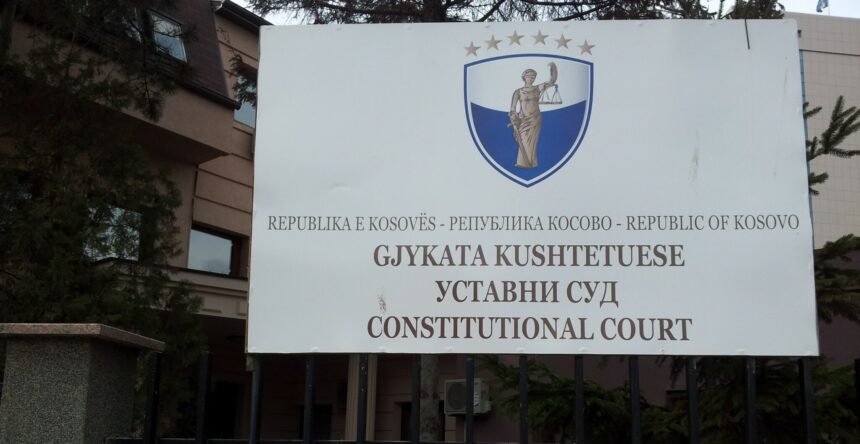Until August 8, the Constitutional Court of Kosovo has suspended all actions by Members of the 9th Legislature, including their scheduled meetings in the plenary hall every 48 hours.
However, after this date, a new interpretation expected from the same court is anticipated to determine the political future of the country.
Analyst Artan Muhaxhiri believes that only a clear and unequivocal ruling from the Constitutional Court can resolve the current deadlock.
“The decision of the Constitutional Court will be the absolute factor that can shift the entire political scene. There is no other mechanism that can influence political parties or their leaders. Only a clear, precise ruling from the Constitutional Court can break this impasse and provide a new path for both the political spectrum and the institutional system at large,” Muhaxhiri told RTK.
Similarly, political scientist Dorajet Imeri sees the Constitutional Court as the only authority capable of determining the correct procedural steps. He emphasized that the Court’s decision is binding and any action by political parties beyond the 30-day deadline would be unconstitutional.
“It will be precisely the Constitutional Court that defines the route the Assembly of Kosovo should follow toward its constitution,” Imeri told RTKlive.
However, the political crisis is not expected to remain only at the central level. Its effects are already being projected onto the upcoming local elections.
Experts in political affairs warn that the aggression and tensions seen at the national level may spill over into local municipalities as well.
“The focus of political parties will be diminished toward their candidates in Kosovo’s municipalities, as they will be more concentrated on national developments than on assisting specific candidates. Consequently, those candidates will suffer from a lack of support, both in political and financial resources, compared to the previous elections,” Muhaxhiri noted.
“From the national election year, we will gradually enter the municipal election cycle. Meanwhile, the deep polarization among political parties is likely to continue. This is not at all beneficial for the democratic landscape of the country, and political parties must reflect seriously on the situation,” Imeri added.
Now, the final word lies with the Constitutional Court. According to the analysts, regardless of its verdict, one thing is clear: the crisis in the Assembly risks expanding into the municipalities, endangering democratic integrity and public trust in the electoral process.







